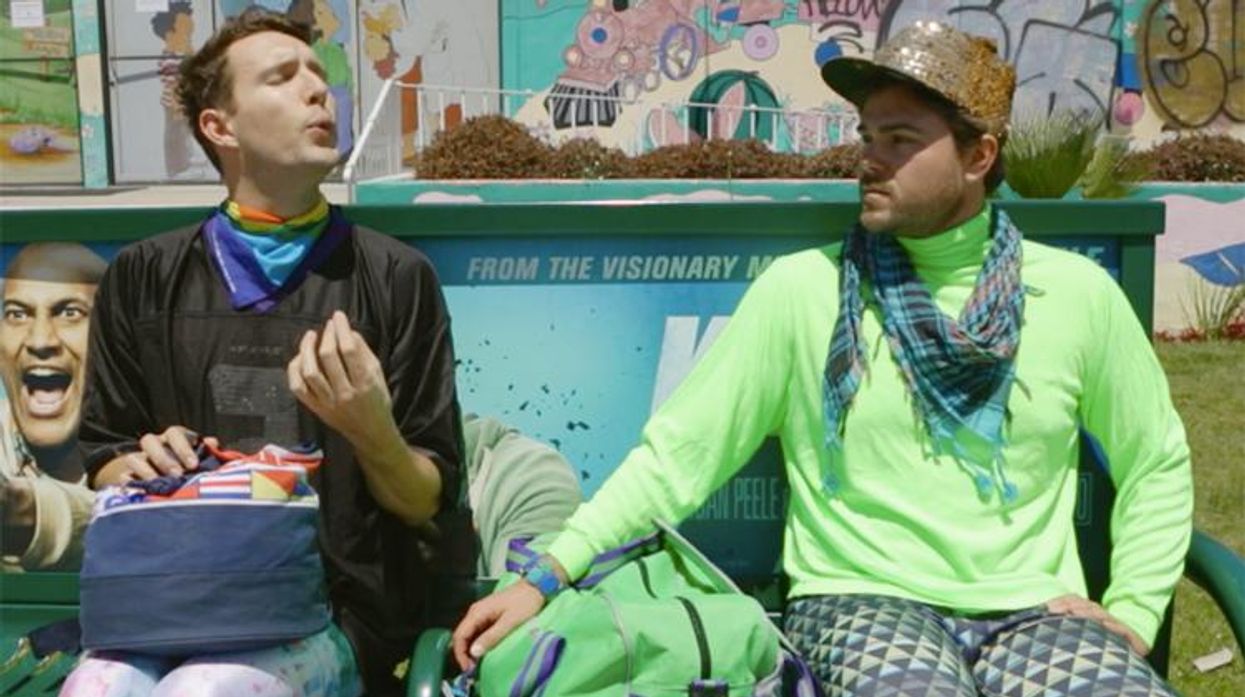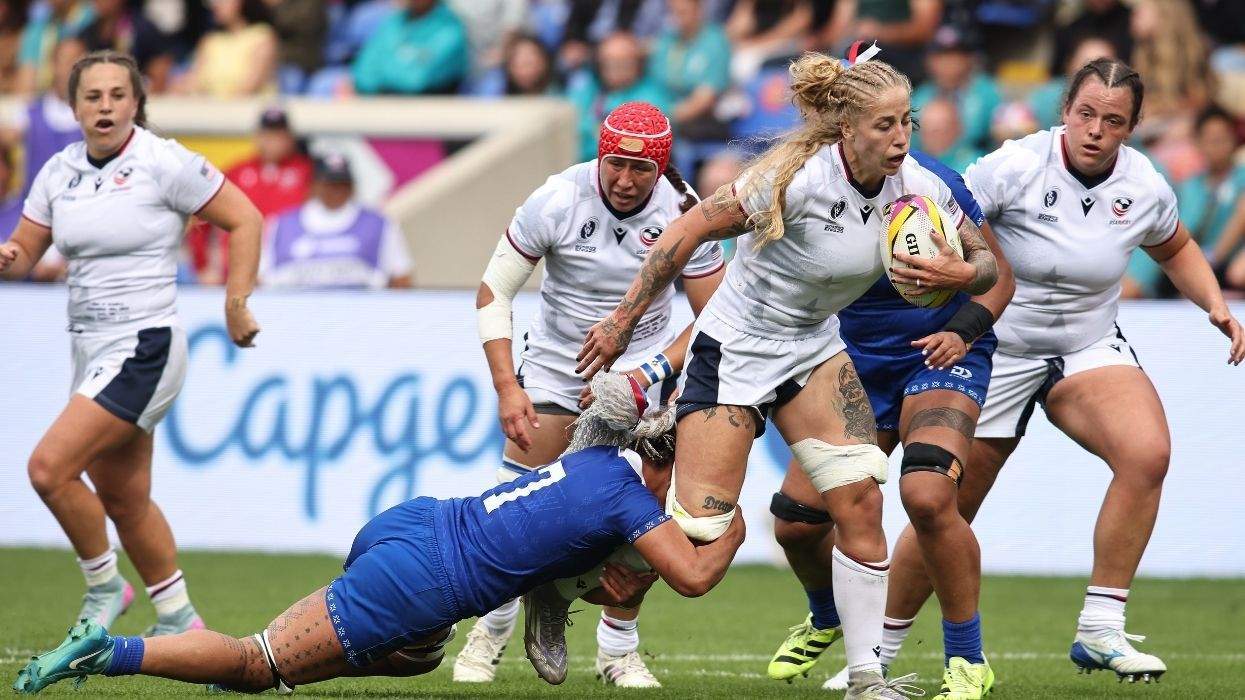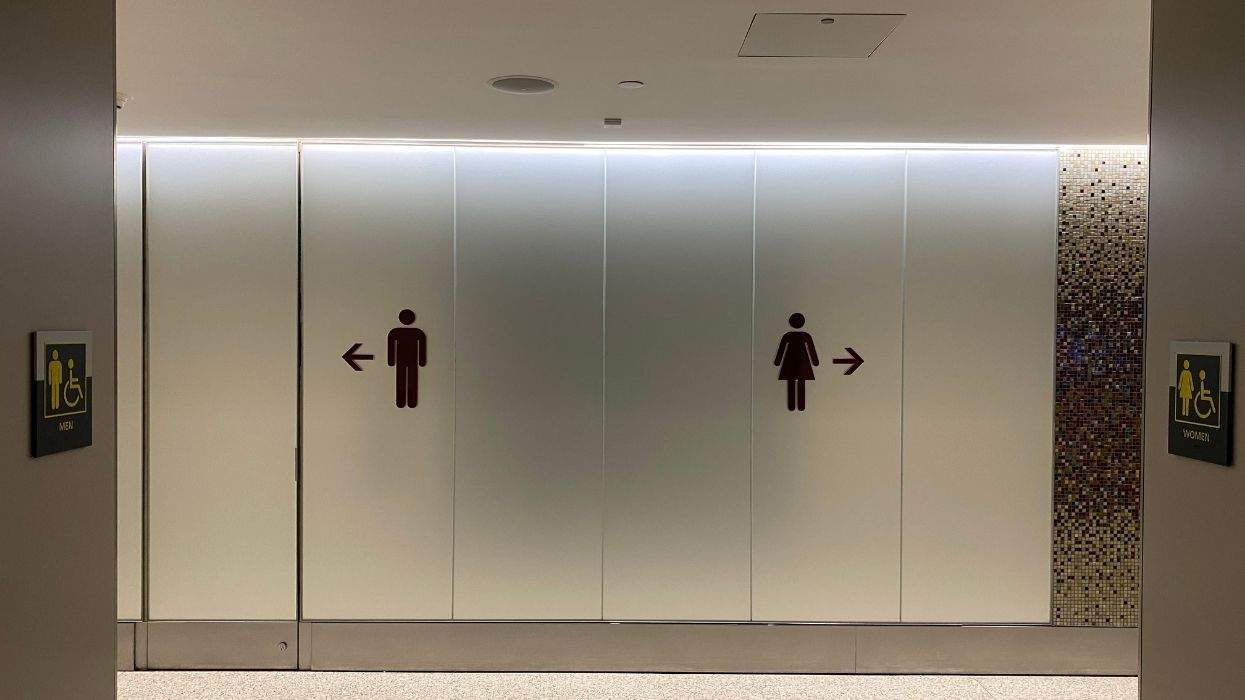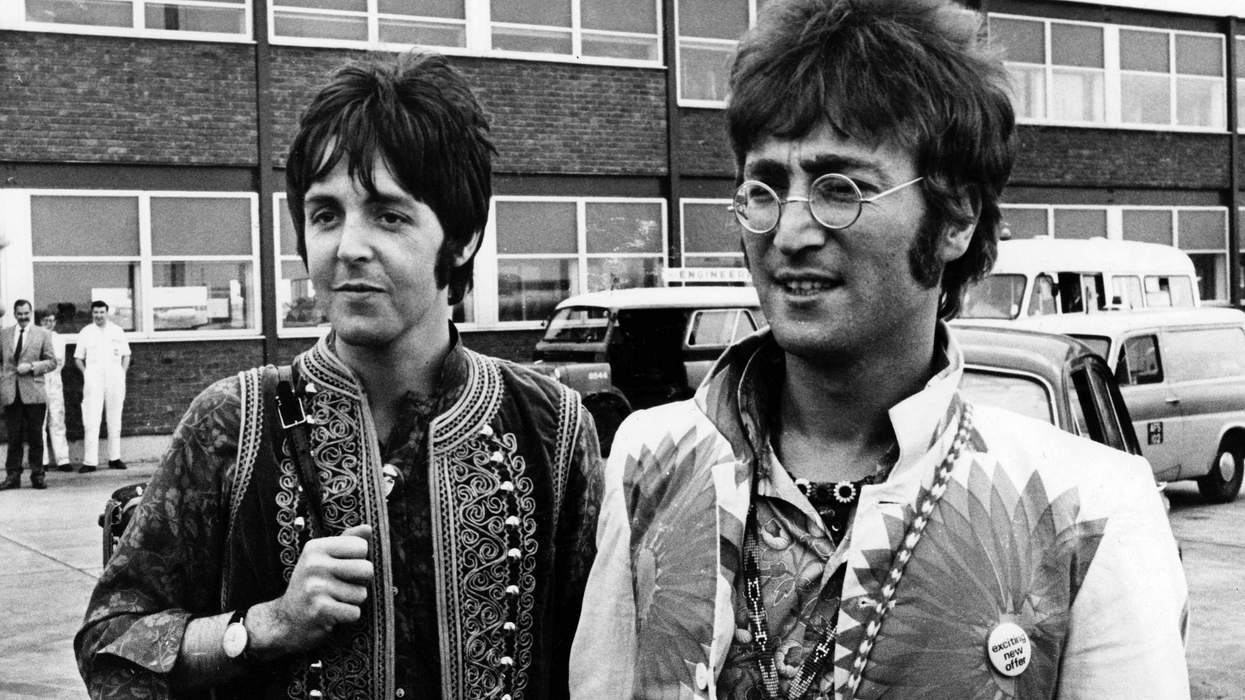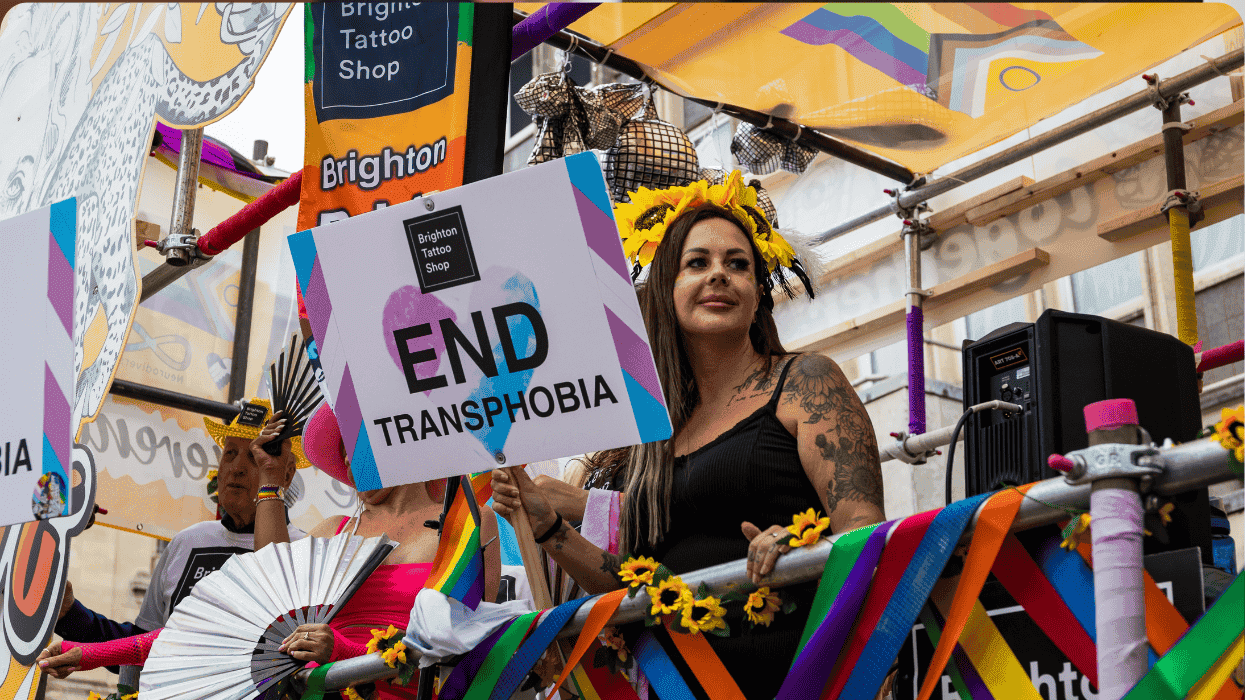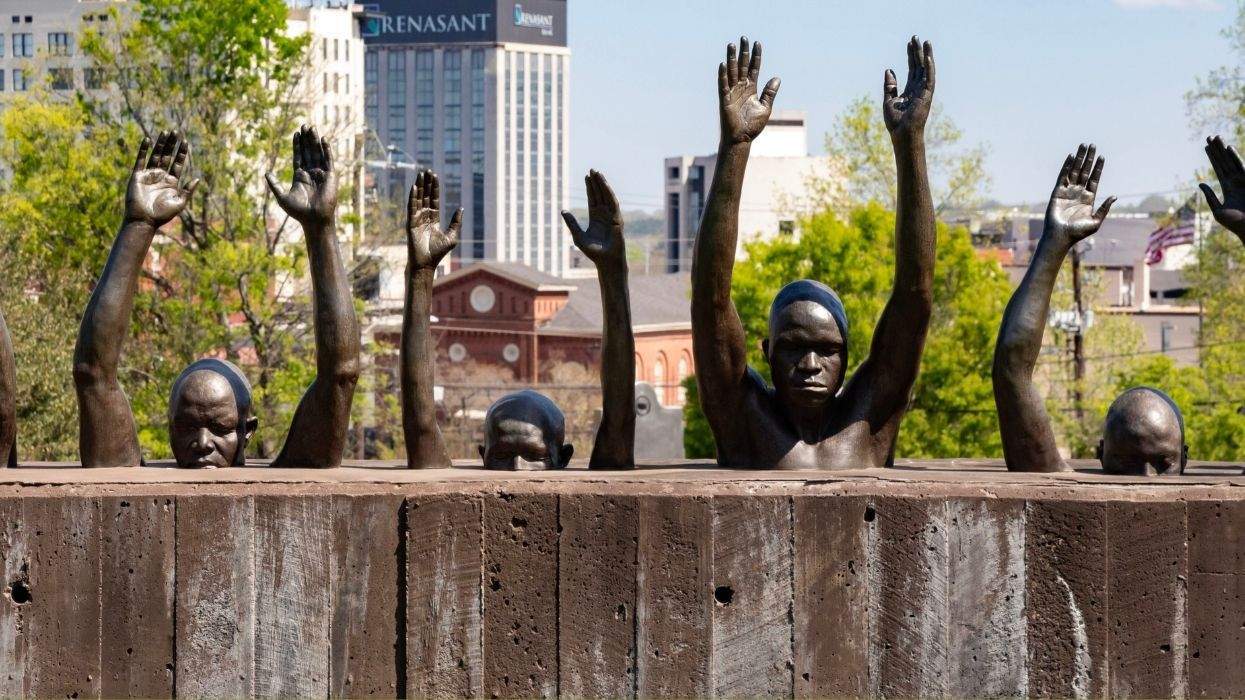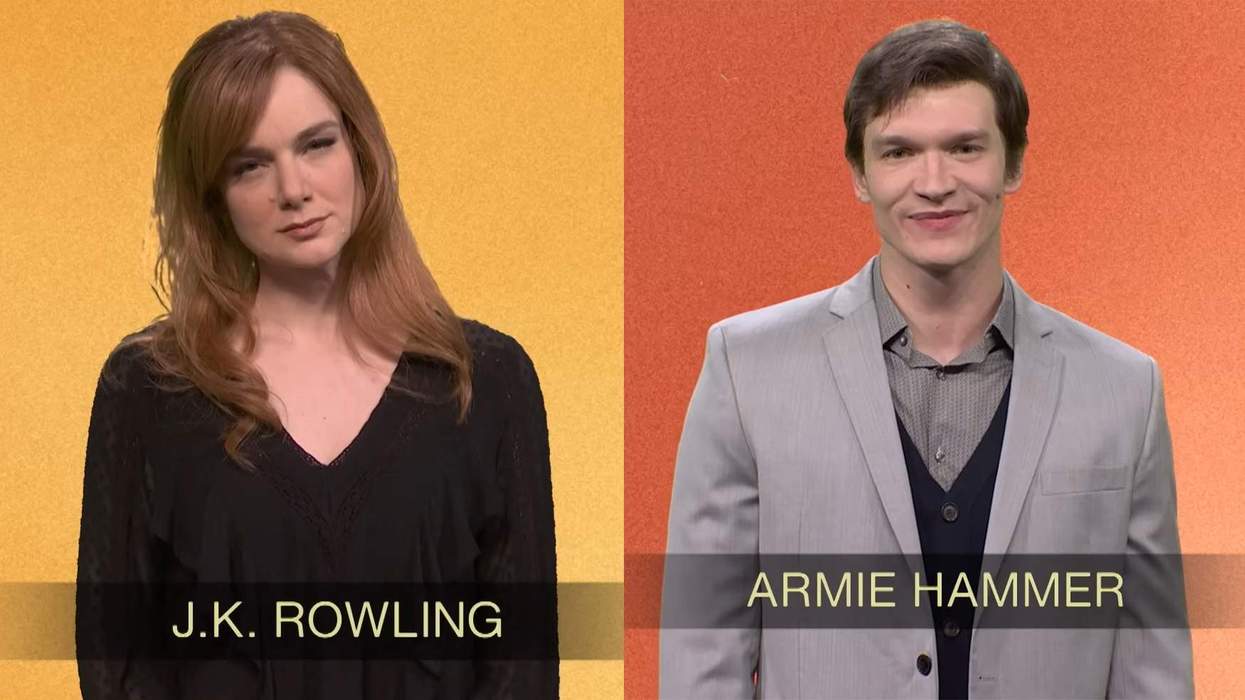In the middle aughts, I was one of many young gay men who graduated college, moved to New York City, and began an aggressive attempt to become as gay as possible. I'd come out in college, but I didn't really blossom until I got to the city. And I didn't really explode into confetti until I formed a gay rap group with my best friend.
Ours began as many gay rap groups do -- at a temp job. I was occupying a reception desk in an office where a great number of people had recently been fired, quit, or left on permanent vacation. Dying plants were left in abandoned offices. Someone found a used condom in the conference room. People kept calling the reception desk asking for employees who no longer existed. I was bored.
So I started writing raps, and named my persona after my breakfast from the diner downstairs: MC Egg'n'Cheese. My rhymes were ... not good. I wrote a song inspired by the movie E.T. and took it home to my best friend, who was sleeping on the couch at my apartment off Canal Street. "We can do this!" he giggled, exhaling from a one-hitter.
"Do what?" I asked
"We can be a gay rap group!"
"But there are already so many gay rappers out there ... Cazwell, Yo Majesty, Gravy Train, VIP, Caushun..."
"Yeah, but, we would, like, be our own thing..."
"Oh ... yeah, yeah ... Cool! Let's do it!"
Thus a rap group was formed in a densely fogged living room teetering over the mouth of the Holland Tunnel.
We workshopped our rhymes at gay bars, dancing in a corner by ourselves, while perfect-looking, upwardly mobile gay dudes walked by and glared. At B Bar we wrote, "Send your wife home, I wanna bone, cuz you's a fag and I wanna tea bag!" We relayed this new opus to a musician friend over sushi in Park Slope, and the next thing we knew, we had real, dope-ass beats over which to lay our rhymes. We played our first show at the Cake Shop, a basement venue on the Lower East Side, and then performed in New York and beyond for the next four years.
What I realized over those four years was not how to get laid after a show (though I tried), but that there was a real need for an uncensored, no-fucks-given expression of what it felt like to be young and gay in America. Our audiences were diverse and enthusiastic. Perhaps our greatest accomplishment was creating a space that felt open and playful, where, if we did our jobs correctly, a young straight couple would leave saying, "Hey, you wanna try anal tonight?"
But the road to gay rap stardom was not a straight line. The America of my childhood didn't feel too welcoming for gay people. When I looked out into the media for role models, I didn't find much. My youth was the era of "don't ask, don't tell," Matthew Shepard, and the rise of a religious right that asked us to stay in the closet or try conversion therapy. At the same time, rap was becoming the predominant pop form in American music. As Derek Thompson writes in The Atlantic, when N.W.A. scored the first-ever number 1 album by a rap group in 1991, a seismic shift occurred. From that moment onward, rap would be the most influential form across all genres of American music.
As a teenager, I was enamored with A Tribe Called Quest's Midnight Marauders, the Beastie Boys' Paul's Boutique, Notorious B.I.G.'s Life After Death, and DMX's It's Dark and Hell Is Hot. As I looked deeper, I saw artists creating elevated personas that toyed with public perception and spoke to lives that the mainstream traditionally ignored. N.W.A. rapped about Los Angeles communities plagued by generations of police brutality, and they had a message to deliver: Fuck tha police. Biggie told us how to make it in a neighborhood with no internship programs: It's the 10 Crack Commandments. DMX spoke to an invincible masculinity that the prejudice of mainstream society could not penetrate: "I just love when a n**** bring his whole crew, just a bigger piece of cake for me to chew a hole through." And no one was quicker to beat haters to the punch than Lil' Kim. She was the only girl in the room, and she dared you to call her a slut: "Lil' Kim spread like syphilis. You think I'm pussy? I dare you to stick your dick in this."
When we created our rap group, our goal was to bring Lil' Kim swagger to man-on-man love. We wanted to challenge the portrait of masculinity that DMX and others preached by talking about butt stuff. We had a story to tell that wasn't out there, and we wanted people to have fun while they heard it. Today, I feel the same way. That's why I created Butch & Nellie Take the Rap Game, a web series based on our original group. Make no mistake, Butch and Nellie are not acting for the greater good. They are laser-focused on fame, but they are going to get there by being themselves, which, unbeknownst to them, is an act of revolution.
My hope for this series is that in some way it can embolden the next generation of Butches and Nellies to make their voices heard. I look around and I still see a country that is quick to judgment and reluctant to hear the stories of average LGBT people working to get by in America. As we resist a government that threatens to shut us out, we need stories to help us break through.
How else do we convince the opposition that Gavin Grimm is more than the sex he was assigned at birth or that LGBT protections in the workplace don't threaten religious freedom? We need to humanize these issues to facilitate progress. Who knows, maybe if we throw a catchy beat in there, somebody new might listen.
CONOR FETTING-SMITH is the creator and star of the web series Butch & Nellie Take the Rap Game, streaming now at butchandnellie.com, Vimeo, YouTube, and Facebook. Watch the first episode below.
